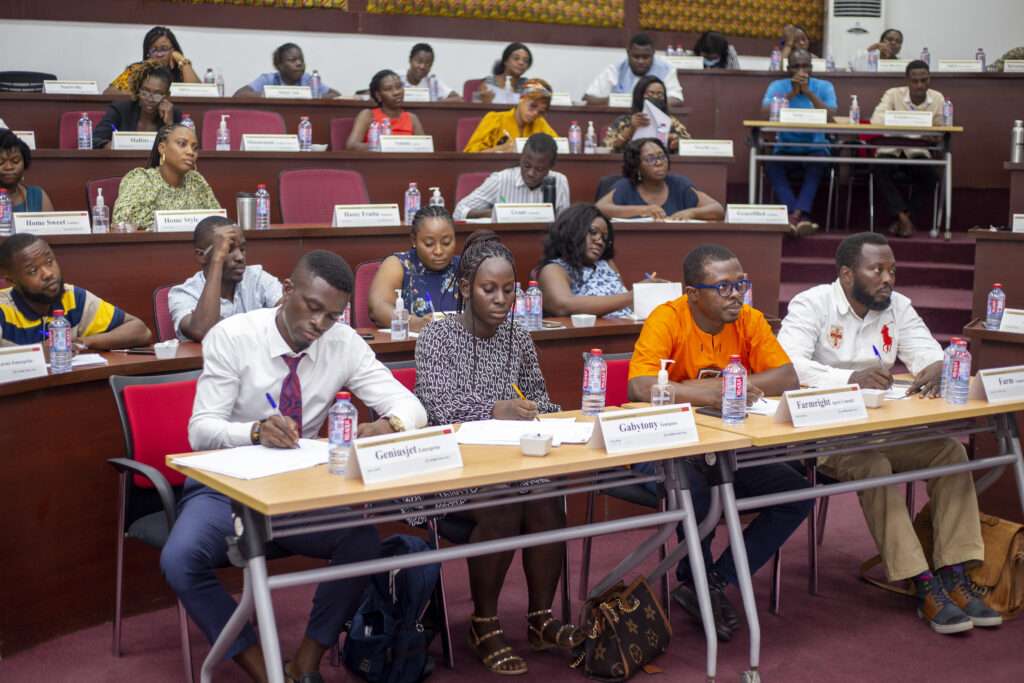Micro, Small, and Medium-scale enterprises (MSMEs) are recognized worldwide for their crucial role in driving economic development, fostering job creation, promoting environmental sustainability, and enhancing financial inclusion, as emphasized by the World Bank.
Given their significance, governments across the globe prioritize the development of MSMEs. This is particularly evident in emerging markets like Ghana, where the MSME ecosystem accounts for the generation of at least seven out of every ten formal jobs.
However, despite their pivotal role, the expansion of this sector is often impeded by the limited availability of funding, consistently identified as the second major barrier for MSMEs.
Although a staggering 85% of enterprises in Ghana are SMEs, recent studies suggest that many of these businesses struggle to remain competitive, survive, or achieve growth.
This struggle is exacerbated by challenges in accessing bank loans, primarily stemming from insufficient registration paperwork, inactive business accounts, and a history of poor cash flow.
In response to these challenges, subsidized lending interventions have emerged as crucial catalysts for economic growth within the dynamic landscape of Micro, Small, and Medium Enterprises. A prime example is the Absa Young Africa Works loan, a groundbreaking initiative established in collaboration with the Mastercard Foundation in October 2020.
Offering capital at an advantageous rate of 10%, this initiative aims to unlock financial resources for small businesses in Ghana. However, its impact extends beyond mere financial assistance. Through strategic training and business development opportunities, the initiative empowers MSMEs to expand their operations and contribute significantly to the burgeoning Ghanaian workforce.
Since its inception, the Absa Young Africa Works initiative has made substantial strides, providing tangible prospects for business growth to 6,466 MSMEs, including smallholder farmers, over three years.
The Absa Young Africa Works approach to business development focuses on bridging knowledge gaps and equipping entrepreneurs with skills in key areas including financial management, business strategy, operations, and workforce management.
In October 2023, the Business Acceleration and Sustainability Training program implemented in partnership with AngloGold Ashanti and the training agency, Empretec, focused on micro and small businesses to empower them with entrepreneurial and business management skills.
The goal is to grow their businesses and position them to serve the gold-mining community in the Ashanti region.

“I attended the Absa Young Africa Works SME training program in 2021 and 2022. The training proved insightful and helped me introduce new packaging for my fish powder products. In 2023, I began to supply big supermarkets and shopping malls which has resulted in increased sales.”
Irene Adafia (CEO, Sadarut Foods)
Focusing on Women-led Businesses
Furthermore, The support and intentional creation of opportunities for women-owned businesses to thrive is a hallmark of the Absa Young Africa Works.
Since its commencement in October 2020, the proportion of women-led businesses among all trained MSMEs has been 63%. Additionally, the mentoring program, instituted in January 2024, targeted 24 MSMEs, 20 of which are women-owned.
“At a point, I realized that what my business needed was very sharp inventory management and records. We deal in home and cooking ware, and without accurate record-keeping and stocktaking, keeping track was difficult. Thanks to the Absa Young Africa Works project, I have learned a lot and have since been running my business efficiently.”
Portia Seraphim (CEO, C.B Seraphim Dept Store)
Focusing capacity-building efforts on women’s businesses is a step towards Absa’s deepened commitment to social and environmental objectives.
According to the United Nations Industrial Development Organization, women are less likely to uphold economic goals over social goals, showing that they have a higher social and environmental orientation than their male counterparts.
READ ALSO: COCOBOD CEO Lambasts MIGOP for Mining Cocoa Farms




















